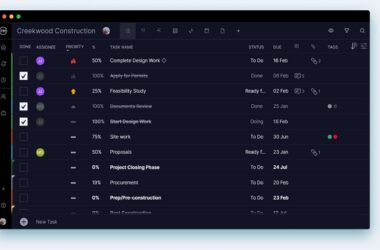When created correctly the lifecycle of a contract is quite long. Not only do all companies need contracts to define all of their relationships, they also need a contract that works for them in the long-run. This is a particular challenge for many businesses, as there are many different stakeholders involved in drawing up and negotiating a contract.
For this reason, companies must evaluate how a contract will behave not only when it is negotiated but also when it is actually signed and implemented. Evaluating these agreements for performance, compliance, and other KPIs defined in the contract is critical to assessing if a contract actually works well for your business. With this in mind, here is how you can take advantage of the contract lifecycle management process to manage your contracts effectively.
The early stages of contract life cycle management
Organizations wishing to enter into a contract with another party must call for the creation of a contract before negotiations can begin. Contracts are intended to regulate new business relationships, although in some cases companies have early-stage relationships without them being stipulated in a contract. This is a mistake to be avoided at all costs, especially when it comes to companies that assume a lot of legal liability that would normally be mitigated in a contract. You should also be aware that once a contract is drawn up, it is rarely if ever negotiated without going back and forth with the other party.
This back and forth is known as the negotiation phase of contract life cycle management. For best results here, you will want to use a contract lifecycle management software to track changes made to a contract during the negotiation phase. The negotiation phase is not actually the most important phase of contract life cycle management, but it is essential and must be done with care and respect to both parties.
When negotiating the contract, consider the KPIs you want to include in the contract. These are important to keep in mind as they will be used to assess the success or failure of the contract at the end of the initial contract terms, which is what the purpose of contract lifecycle management is.
Follow contract fulfillment and performance
Sometimes having a bad contract is worse than failing to have contract in place To determine if this is the case, you need to track the performance of a contract and you need to use KPIs to assess its success or failure for your business. To do this, you must continually analyze these KPIs and make sure that both your own business and the other business consistently adhere to the language of the contract. For example, if the contract is with a shipping or fulfillment company, and there is a rule that stipulates what happens when delays are beyond a certain time frame, then it must be enforced, even if the mistake is due to your failure to uphold the contract.
In general, you want to make sure that both your company and the other company benefit from the contract. Using contract lifecycle management to set up and manage the performance of the contract is essential to ensure that the contract is effective and sustainable for both parties.






